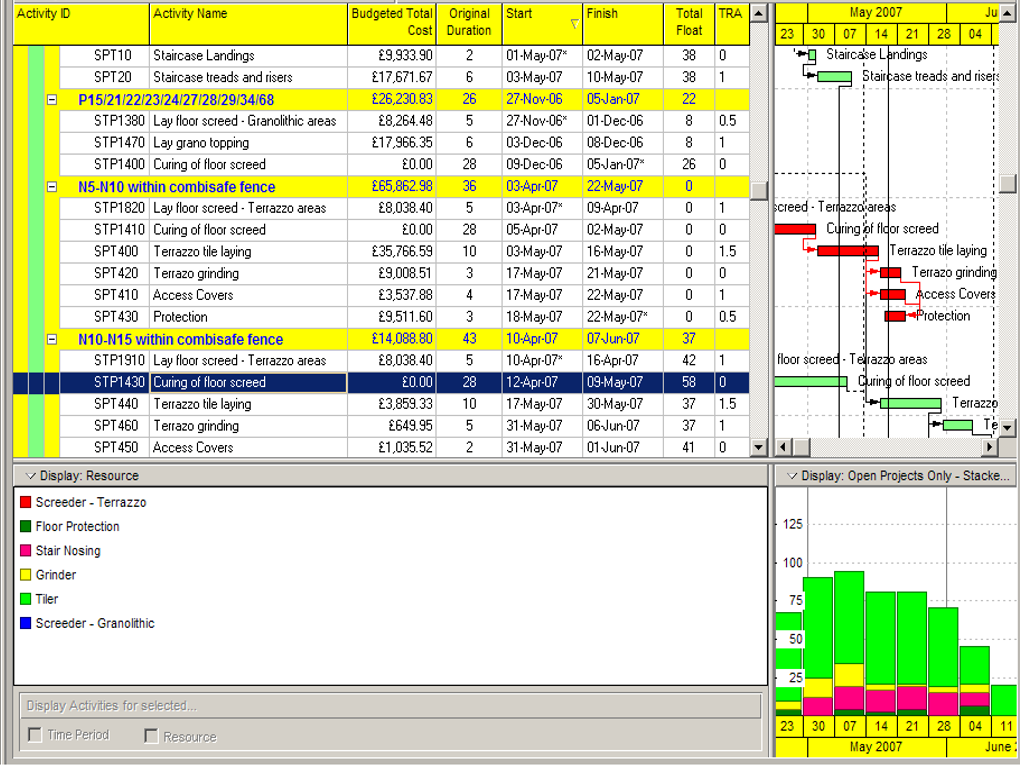
NEC Contract focus month 23 – Payment, Defined Cost and Schedule of Cost Components
Contractors need to ensure regular cashflow during a project and to ensure that they are getting full entitlement for any compensation event that may have occurred. It is therefore very important that they understand both section 5 of the contract and the relevant schedule of cost components that will be used to build up compensation event quotations. This bulletin sets out to summarise these important parts of the contract.

Assessing the amount due: It is the Project Manager that assesses the amount due at each assessment date. The Contractor submits an application for payment before each assessment date setting out what they consider the value should be. The format of the application that the Client is requiring will be identified within the Scope. The assessment interval (normally four weekly or monthly) will be stated in contract data 1. There may also be a reference to a payment calendar that could be an appendix or be included within the Scope, showing the full list of payment application dates for that project. The format and dates of these applications are particularly important as now under NEC4, if the application is not submitted before the assessment date, the Project Manager can assess it at zero or even as a negative assessment (if they believe the last period was “overpaid”). It is very important therefore that a Contractor is not late with their application as they cannot rely on the fact that “in a spirit of mutual trust and co-operation” they should still be paid for an assessment that was submitted late. The application is known as the “Price for Work Done to Date”, of which the definition varies for each contract option (A-F). These definitions will be discussed in a future series of bulletins that will cover each specific option scheduled. The Project Manager corrects any wrongly assessed amount due in a later payment. Therefore, a Contractor cannot be assured that payment made in any month previous will not be reduced, as the Project Manager can “un-pay” any amounts in any future assessment.

First programme: If no programme is identified in the contract data, 25% of the Price for Work Done to Date is retained in assessments of the amount due until the Contractor has submitted a first programme to the Project Manager for acceptance showing the information the contract requires. The “underlined” words are important as it is not just submitted – it needs to be submitted to a standard that would be good enough to be accepted. It is therefore very important to make sure that either a programme is referenced in contract data 2 as part of the tender submission, or that every effort is made to get the first programme accepted as quickly as possible following contract award. This should be something that both Parties strive towards, as if it takes several months to accept the first programme, there is no original baseline to be assessing any change against that may already be occurring.

Payment: The Project Manager certifies a payment within one week of each assessment date. They should also make it clear the basis on which they have made their assessment, particularly if it is considerably less than the Contractor submitted. The first payment is the amount due, and subsequent payments are the amount due less the previous assessment. Each certified payment is made either within three weeks of the assessment date or within the period stated in contract data. Interest is due (at the rate stated in contract data) on any late payments or previously wrongly assessed amounts by the Client and should be included within the next application.
Defined Cost: There are two versions of the cost components, the “Schedule of Cost Components” and the “Short Schedule of Cost Components”. The short schedule as the name suggests is shorter as it is used for options A and B and only to assess compensation events. The full “Schedule of Cost Components” is used for options C,D and E and is used to form the basis of each application as well as any compensation events. For either schedule, an amount can only be included if it is incurred in order to provide the works, and can only be claimed in one cost component (not in multiple).
1. People – directly employed by the Contractor and who are working within the working area (either full time or proportional to the amount of time they are in the working area) in terms of their wages, overtime, absence due to sickness or holiday, pension, safety training, protective clothing etc (see section 1 of SCC for the full list).
2. Equipment (in simple terms temporary works) – which includes equipment owned or hired by Contractor, purchase price for Equipment that is consumed (such as fuel), transporting to and from the site.
3. Plant and Materials (in simple terms permanent works) – which includes purchasing the materials, delivering to site providing/removing and packaging and any associated samples/tests.
4. Subcontractors – this is a new section to NEC4 that now allows subcontractors costs, as a lump sum, to be included rather than having to build up from first principles.
5. Charges – which includes services such as water/electricity to site offices, leasing land for site offices, consumables for Project Manager/Supervisor’s offices, charges(or payments received) for disposal of materials from excavations and demolition.
6. Manufacture and Fabrication – cost of people involved in manufacture and fabrication of Plant and Materials by the Contractor, which are at least partly designed specifically for the works, and that are fabricated outside of the works, at their rate stated in contract data.
7. Design – cost of people involved in design that are outside of the working area at their rate stated in contract data (with an extra allowance for travel expenses when they need to travel to the Working Area).
8. Insurance – practically speaking only reaffirms what the Contractor can not charge for insurable events and insurance premiums rather than stating nothing is claimable in this section.
Short Schedule of Cost Components:
1-8 Same list of headings but slightly more condensed/simplified as it is only used for assessing compensation events. People for example is much more condensed as option A uses predetermined People Rates included within the tender submission rather than building them up from first principles for an individual compensation event.
Final Assessment: NEC4 does now include a whole section on the final assessment which will take place within four weeks after the Supervisor issues the Defect Certificate (or within thirteen weeks on the rare occasion a termination certificate is issued). The final payment is then due within three weeks (or the period stated in contract data). Should the Project Manager not make the assessment within the period, the Contractor can issue to the Client an assessment of the final amount due. The contract intimates this final assessment will be deemed accepted if the Client does not make their own assessment within the timescale. Summary: Important that a Contractor submits applications on time and to the required standard and with at least the first programme submitted showing the information the contract requires, otherwise it could affect the payment due. Understanding the relevant schedule of cost components will again ensure that maximum entitlement can be justified and claimed for building up compensation event quotations. For options C-E the amounts within the schedule of cost components will also form the basis of the applications which in turn is important to maximise for good cashflow.

